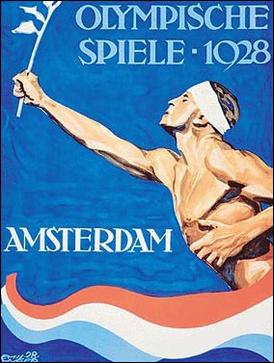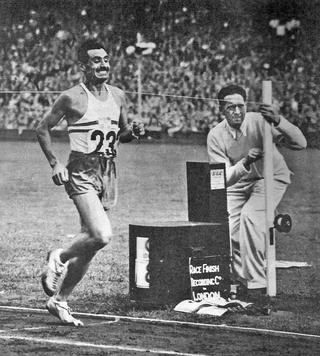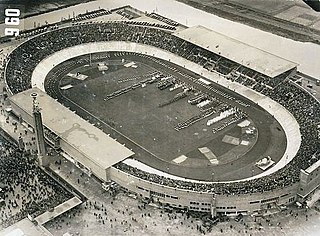
The Summer Olympic Games, also known as the Summer Olympics or the Games of the Olympiad, is a major international multi-sport event normally held once every four years. The inaugural Games took place in 1896 in Athens, Greece, and the most recent was held in 2024 in Paris, France. This was the first international multi-sport event of its kind, organized by the International Olympic Committee (IOC) founded by Pierre de Coubertin. The tradition of awarding medals began in 1904; in each Olympic event, gold medals are awarded for first place, silver medals for second place, and bronze medals for third place. The Winter Olympic Games were created out of the success of the Summer Olympic Games, which are regarded as the largest and most prestigious multi-sport international event in the world.

The 1928 Summer Olympics, officially the Games of the IX Olympiad, was an international multi-sport event that was celebrated from 28 July to 12 August 1928 in Amsterdam, Netherlands. The city of Amsterdam had previously bid for the 1920 and 1924 Olympic Games. Still, it was obliged to give way to war-torn Antwerp in Belgium for the 1920 Games and Pierre de Coubertin's Paris for the 1924 Games.

The 1920 Summer Olympics, officially known as the Games of the VII Olympiad and commonly known as Antwerp 1920, were an international multi-sport event held in 1920 in Antwerp, Belgium.

The 1912 Summer Olympics, officially known as the Games of the V Olympiad and commonly known as Stockholm 1912, were an international multi-sport event held in Stockholm, Sweden, between 6 July and 22 July 1912. The opening ceremony was held on 6 July.

The 1948 Summer Olympics was an international multi-sport event held from July 29 through August 14, 1948, in London, United Kingdom. It was the first Olympic Games to take place in twelve years, due to the Second World War, with London being chosen as the host city in May 1946.

The 1924 Summer Olympics, officially known as the Games of the VIII Olympiad, was an international multi-sport event held in Paris, France, from 4 May to 27 July. A total of 3,089 athletes from 44 nations participated in 126 events in 17 sports across 23 different disciplines.
This is the full table of the medal table of the 1920 Summer Olympics which were held in Antwerp, Belgium.

The field hockey competition at the 1920 Summer Olympics was held between September 1–5, 1920 in Antwerp, Belgium. Only four teams took part in the tournament and Great Britain won the gold medal.
At the 1920 Summer Olympics in Antwerp, ten swimming events were contested. The women's 300 metre freestyle event was new since the previous Games in 1912. The competitions were held from Sunday August 22, 1920, to Sunday August 29, 1920. There was a total of 116 participants from 19 countries competing.
Art competitions formed part of the modern Olympic Games during its early years, from 1912 to 1948. The competitions were part of the original intention of the Olympic Movement's founder, Pierre de Frédy, Baron de Coubertin. Medals were awarded for works of art inspired by sport, divided into five categories: architecture, literature, music, painting, and sculpture.

Art competitions were held as part of the 1928 Summer Olympics in Amsterdam, the Netherlands. Medals were awarded in five categories, for works inspired by sport-related themes.
Art competitions were held as part of the 1912 Summer Olympics in Stockholm, Sweden. It was the first time that art competitions were part of the Olympic program. Medals were awarded in five categories, for works inspired by sport-related themes.
Art competitions were held as part of the 1924 Summer Olympics in Paris, France. Medals were awarded in five categories, for works inspired by sport-related themes.

Art competitions were held as part of the 1932 Summer Olympics in Los Angeles, United States. Medals were awarded in five categories, for works inspired by sport-related themes.
Art competitions were held as part of the 1936 Summer Olympics in Berlin, Germany. Medals were awarded in five categories, for works inspired by sport-related themes.

Art competitions were held as part of the 1948 Summer Olympics in London, Great Britain. Medals were awarded in five categories, for works inspired by sport-related themes.

The Olympic Games ceremonies of the ancient Olympic Games were an integral part of the games; modern Olympic Games have opening, closing, and medal ceremonies. Some of the elements of the modern ceremonies date back to the ancient games from which the modern Olympics draw their ancestry. An example of this is the prominence of Greece in both the opening and closing ceremonies. During the 2004 Summer Olympics, the medal winners received a crown of olive branches, which was a direct reference to the ancient games, in which the victor's prize was an olive wreath. The various elements of ceremonies are mandated by the Olympic Charter, and cannot be changed by the host nation. Host nations are required to seek the approval of the International Olympic Committee (IOC) for ceremony elements, including the artistic portions of the opening and closing ceremonies.
Francis Augustus Richards was a British sailor. He competed at the 1920 Summer Olympics in Antwerp and won a gold medal in the 18 ft. Dinghy class with Trevor Hedberg. Sailing the boat Brat, Richards and Hedberg were the only entrants in their class. It is uncertain if this crew was actually awarded the gold medals - they were not able to finish the first competition and they did not start in any other; they do not appear in the Official Report of the Antwerp Games. However they are listed on the website of the ISAF and formerly on that of the IOC as Gold Medalists.
Ève Henriette Brossin de Mère de Polanska (Blanska) (1878–1954) was a French/Swiss painter.










